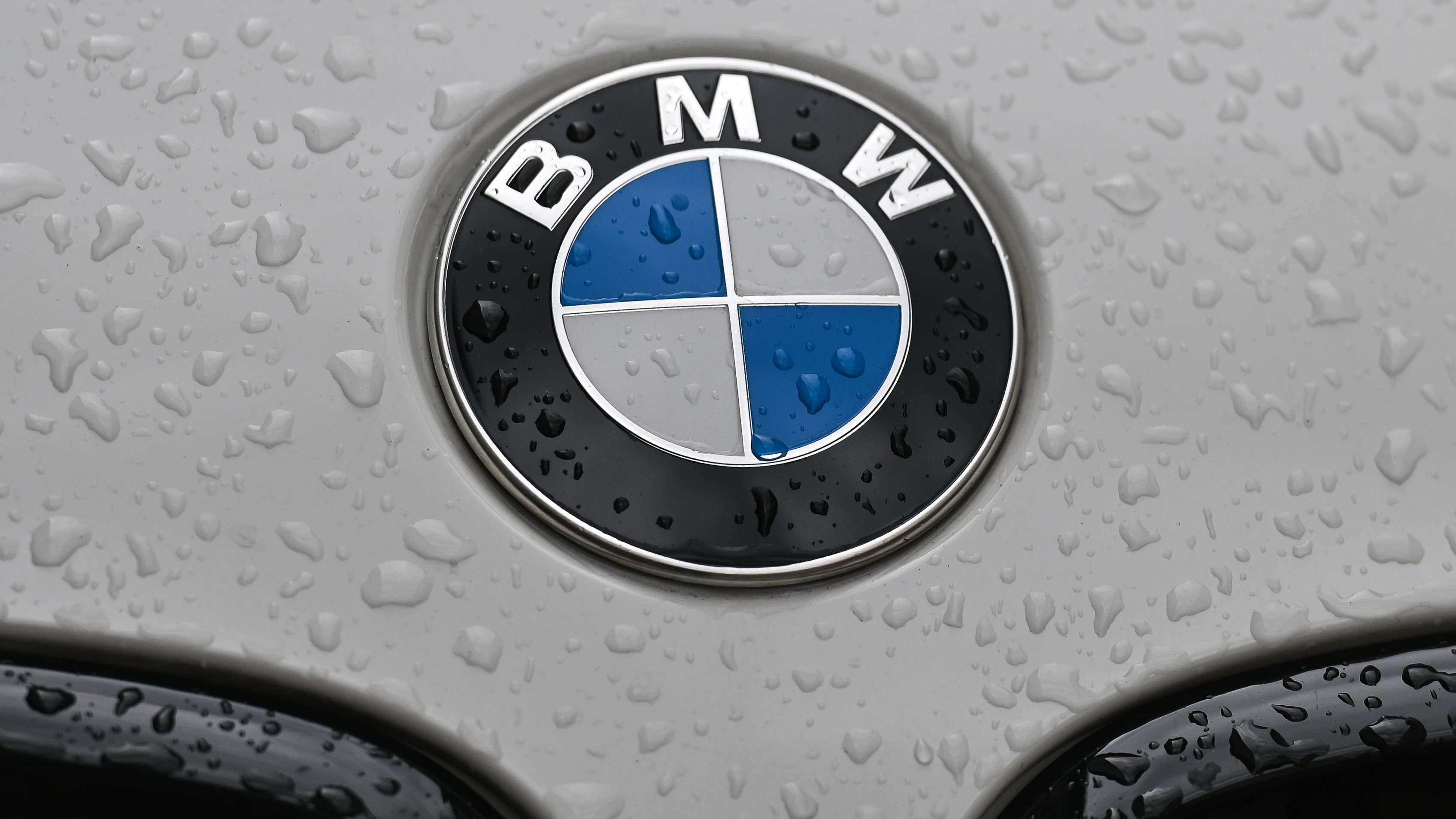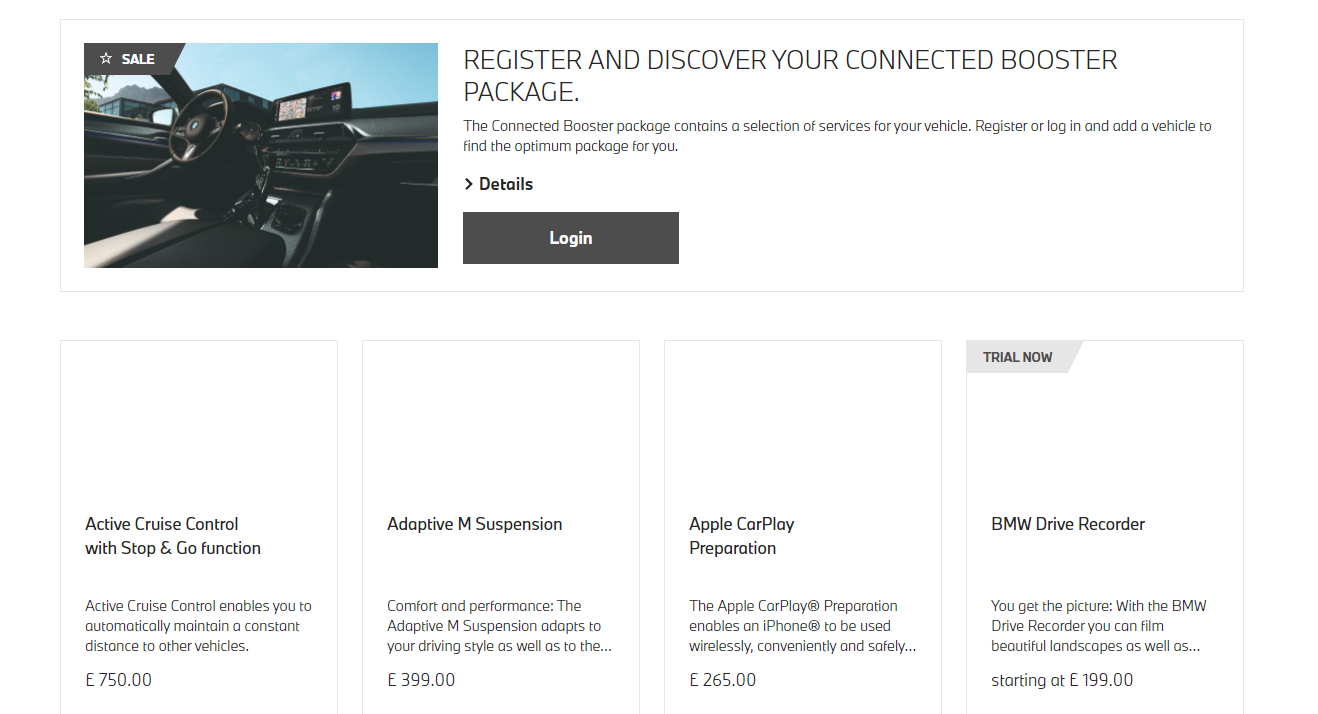Welcome to microtransaction hell: Buy a BMW, pay monthly for the car's features
Talk about cut cartent.

Welcome to actual hell. For most of us, owning a BMW would be an aspirational thing: the latest model from the carmaker will set you back just under $95,000/£80,000. It's not chump change. Now imagine you'd scrimped and saved to afford a big-ticket item like this and then, when you drove it, the thing started nickel-and-diming you like the worst kind of F2P mobile game.
BMW's cars are high-end items, you could fairly describe it as a luxury carmaker, and the company has been interested in how microtransactions could fit into that for a while. It's had some false starts along the way: in 2019 BMW offered a subscription service for Apple CarPlay in the US, which lets you integrate your phone with the vehicle's screens and audio system, for $80 a year. Reaction was so negative that it quickly U-turned and made the feature a standard inclusion across most of its cars.
That doesn't mean it's given up, though, and now it's trialling another offering in South Korea: paying to heat your seats. This costs approximately $18 a month (thanks, the Verge), or you can opt to pay for 'unlimited' access for a one-off payment of $415.
The latter option makes this seem more reasonable: after all, a car's ticket price has never included the 'extras' that come in the upsell. The difference-maker here is that BMW's cars are all perfectly capable of stuff such as (deep breath) Active Cruise Control, Adaptive M Suspension, Apple CarPlay, or BMW Drive Recording. It's just that now you need to pay for the software to unlock these features that are built into the car you've already bought.
Where exactly this is happening, outside of South Korea where it's launched, remains to be seen. The BMW UK store, for example, lists a variety of what BMW calls 'DriveConnected' features, including front seat heating (£15/month), steering wheel heating (£10/month), or the privilege of paying to have the on-board GPS map updated with new information. The carmaker does not seem to be attempting to introduce this in the US yet, which is probably a hangover from the Apple CarPlay debacle, but don't be under any illusions that it will.

The bigger argument here is whether companies should be able to sell products that have artificial locks on them. Any BMW car that these features can be bought for already has the hardware functionality: it just needs to be enabled by BMW software. BMW itself notes on the description for some of these features that "the hardware for this feature has already been installed in your vehicle during production, at no extra cost".
And a BMW is something with a huge ticket price in the first place. Watch the below video and tell me this is not a dystopia.
The biggest gaming news, reviews and hardware deals
Keep up to date with the most important stories and the best deals, as picked by the PC Gamer team.
Perhaps there's the rub. The kind of people who are buying new BMWs may not bat an eyelid at a few thousand pounds' extra to unlock various features, and that's the gamble the carmaker is taking. But if there's one thing for sure about microtransactions like this, it's that they devalue the feel of a given product. BMW is supposed to be an aspirational brand, something people daydream about owning. But who, really, wants a car that's got a car dealer built into it.

Rich is a games journalist with 15 years' experience, beginning his career on Edge magazine before working for a wide range of outlets, including Ars Technica, Eurogamer, GamesRadar+, Gamespot, the Guardian, IGN, the New Statesman, Polygon, and Vice. He was the editor of Kotaku UK, the UK arm of Kotaku, for three years before joining PC Gamer. He is the author of a Brief History of Video Games, a full history of the medium, which the Midwest Book Review described as "[a] must-read for serious minded game historians and curious video game connoisseurs alike."

